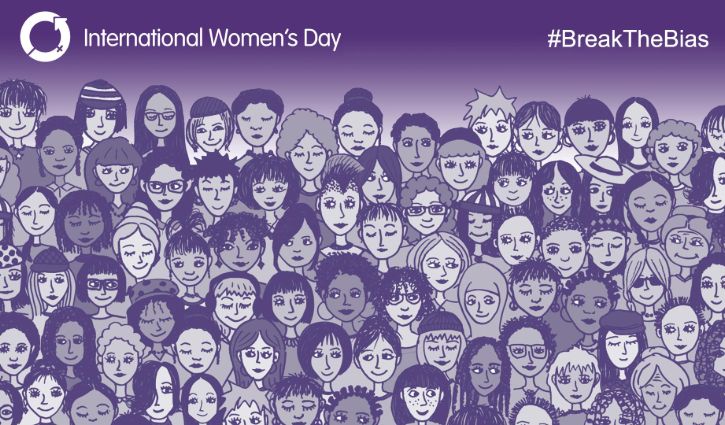Technology staffing firms play a critical role in eliminating gender bias and inequities
International Women’s Day is an annual reminder that there is still much work to be done in closing the gender gap everywhere around the world. There’s a lack of equity in the workplace and it can be quantified: for every dollar a male employee makes, a female employee performing the same work earns only 82 cents; only 85 women are promoted for every 100 men who move up the ranks. Beyond gender alone, there’s also intersectionality at work. “It isn’t just the gender bias of men and women,” Asfa Malik of GrowthMinded Consulting, points out, noting that a woman’s age, race, abilities and sexual orientation also influence their workplace experience. “When you add in intersectionality, bias grows exponentially.”
This inequity is the result of human bias. Bias has a negative connotation, but at its core, it’s inherent to being human. Our brains are designed to use our past experiences, our likes and dislikes, and our influences to filter information and arrive at judgments. Our biases are a mental shortcut.
Breaking the Bias
Breaking our biases means first becoming aware of them, and that begins with questioning ourselves. How do you make decisions that involve people? What factors do you consider, and does gender enter that consideration? Are the conversations you have in the workplace different with women than with men? How do you assign projects? Performance feedback to women tends to be more tactical and behavioral, while feedback to men tends to be more strategic; is this true for you?
Men who become aware of their biases, and the actions that perpetuate them, are important allies in the fight for equity. Men can play a supportive role by asking for feedback from women in the workplace, and by mentoring, coaching, and amplifying the voices of women. Challenging ourselves in this way – and being open to having our biases challenged – isn’t only important for men. Women, too, hold biases that can limit their own growth and progression. For women, it can be a struggle to break with the expected norms, to stop listening to the internal saboteur voice. This struggle to advocate for themselves is worth it, and in turn, for them to ‘pass the baton’, to advocate for others.
The pandemic has paved the way for some positive changes. Virtual meetings are more moderated by design, with each speaker taking turns more so than with in-person meetings. This means that the loudest voice in the room – which tends to be that of a man – isn’t necessarily the only one that is heard. With partners more commonly both working from home, there’s also been a shift to more equity in domestic responsibilities.
How the Staffing Industry Can Lead the Way
The staffing industry has an important role to play in advancing equity in the workplace. By the nature of our work, we are on the frontlines of our clients’ DEI efforts. The role we play begins with the initial client consultation, developing a framework for expectations that sets the stage for a more equitable hire. Carl Bentley, EVP of Strategic Staffing Solutions, says it begins with asking what the client stakeholder is looking for. “Understand that and make the hiring decision based on the person, not necessarily the resume. Sell the person based on the value they bring,” Bentley said.
Once again, the first step is becoming aware of our own biases. Question yourself: What factors do you consider when you’re creating candidate slates – both internally, and for your clients? What might change if you switched to blind resumes, with only initials where the name would be, and with the years removed from the education section and possibly even the work history?
“Depending on the job, years of experience aren’t necessarily indicative of the capability of the individual,” said Anna Frazetto, CDTO of Tential. In interviews, how do you address gaps in work history, given that those gaps are more common and more frequent for women? When it comes to sourcing, are you always going to the same places? Build networks outside your comfort zone, find alternative sources for candidates that can help diversify your own talent pools and pipelines.”
As our client’s partner to fulfill their hiring needs, a technology staffing firm plays an important role in helping its clients reach their DEI goals. Become the subject matter expert your clients want you to be and help them understand the value of diversity in the workplace, as well as the relationship between diversity and profitability. Stay on top of continued research in the field so you can inform and support your clients as the specialist you are.
Inequity and Bias
Ultimately, this is easier when companies are already pursuing DEI goals of their own, but where that’s not the case, you have a role to play as a champion. Dawn Fry, U.S. Head of DEI for SThree, outlines the power of the role staffing firms can play with these clients. “Not everyone is in the same place of understanding [DEI],” Fry said. “If we’re knowledgeable, we can sell the benefits of hiring for diversity.” Tactically, this means keeping the focus on the right skills and qualifications for the job, rather than on the right person for the job.
It means helping the client move toward greater pay equity as well. There’s a move toward compensation transparency in job postings; that’s a good step. As Quyen Pham, VP of Swoon Consulting, notes, the consultant has an important role in educating clients here as well. “When you’re posting for a position, you’re looking for the most qualified person. It’s the position, not the person who’s going to fill it.” A successful hire, Pham continues, is about “finding the best candidate for the role and paying them what that role should be paid.”
Would you like to know more? To hear the full – and very lively – discussion about these and other ideas for advancing equity in the workplace, you can view the Break the Bias webinar here.












